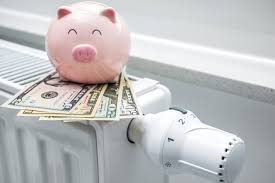As winter approaches, many homeowners are bracing for the inevitable rise in heating costs. Keeping your home warm doesn’t have to break the bank. With a few smart strategies and investments, you can significantly reduce your heating expenses. Here are some effective ways to save money on your home’s heating costs.
Optimize Your Thermostat Settings
One of the simplest ways to save on heating costs is to adjust your thermostat. Lowering the temperature by just a few degrees can make a noticeable difference in your energy bills. For optimal savings, set your thermostat to 68°F when you’re at home and awake, and lower it by 10-15°F when you’re asleep or away. Investing in a programmable or smart thermostat can automate these adjustments, ensuring you’re not heating your home when it’s unnecessary.
Use Space Heaters Wisely
Electric space heaters can be an efficient way to add instant heat to small spaces. According to Murdoch’s Ranch & Home Supply, these heaters are ideal for heating rooms of 130-150 square feet, such as bedrooms or small living rooms. Instead of heating your entire home, use space heaters in the rooms you occupy most. This targeted approach can significantly reduce your overall heating costs. However, it’s important to use space heaters safely and only when needed to avoid excessive energy use.
Improve Window Efficiency
Windows are a major source of heat loss in homes, accounting for approximately 30% of heating energy loss. To combat this, consider investing in energy-efficient windows or adding storm windows. If replacing windows isn’t an option, use weatherstripping and caulk to seal any gaps and cracks around your windows. Adding heavy-duty curtains or thermal drapes can also help insulate your windows and keep the heat inside.
Insulate Your Home
Proper insulation is crucial for maintaining a warm home and reducing heating costs. Attic insulation, in particular, can have a significant impact. Properly insulated attics can save you 10 to 50% on your heating and cooling bills, prevent the formation of ice dams, and save you from expensive roof repairs. Check the insulation levels in your attic, walls, floors, and crawl spaces, and add more if necessary. Insulating your home helps retain heat, reducing the need for your heating system to work overtime.
Seal Air Leaks
Air leaks can cause significant heat loss and increase your heating costs. Common areas where leaks occur include doors, windows, and ductwork. Use weatherstripping and door sweeps to seal gaps around doors. For windows, apply caulk to seal any cracks. Additionally, inspect your ductwork for leaks and seal them with duct tape or mastic sealant. By eliminating drafts and ensuring your home is properly sealed, you can improve heating efficiency and reduce energy consumption.
Maintain Your Heating System
Regular maintenance of your heating system can ensure it operates efficiently. Replace furnace filters every 1-3 months to maintain good airflow and reduce strain on your system. Schedule annual inspections and tune-ups with a professional to keep your furnace or heat pump in optimal condition. A well-maintained heating system runs more efficiently, using less energy and saving you money.
Utilize Ceiling Fans
Ceiling fans aren’t just for cooling; they can also help distribute warm air during the winter. Set your ceiling fans to run clockwise at a low speed. This will push the warm air that rises to the ceiling back down into the living space, making your home feel warmer without cranking up the heat.
Optimize Your Heating Zones
If your home has a zoned heating system, take advantage of it. Heat only the areas you use frequently and lower the temperatures in rooms that are rarely occupied. This targeted heating approach ensures you’re not wasting energy on spaces that don’t need to be warm, thereby reducing your overall heating costs.
Use Sunlight to Your Advantage
On sunny days, open your curtains and blinds to let natural sunlight warm your home. Sunlight can provide a significant amount of free heat, reducing the need to rely on your heating system. Close the curtains and blinds at night to retain the heat.
Reducing your home’s heating costs doesn’t require drastic measures. By implementing these practical tips, you can keep your home warm and comfortable while saving money. From optimizing thermostat settings and using space heaters wisely to improving insulation and sealing air leaks, these strategies can help you achieve substantial savings on your heating bills this winter.





Be First to Comment